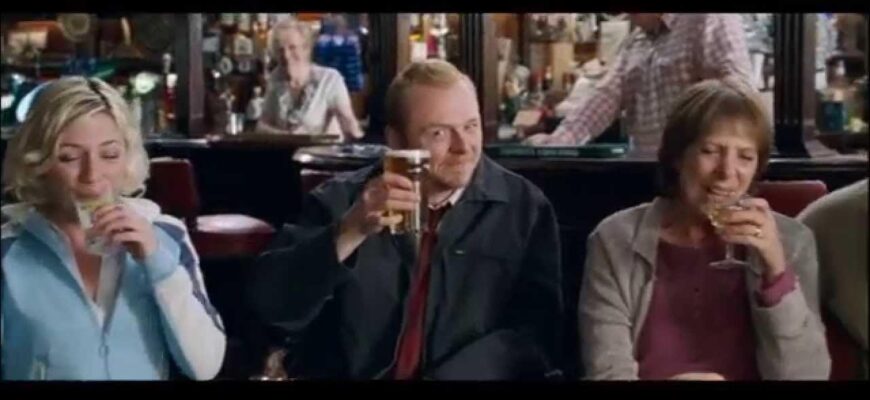As autumn`s chill encourages evenings indoors, television screens worldwide have begun to effuse the enticing, albeit simulated, aromas of fermentation. From sun-drenched vineyards to historic breweries, recent series attempt to bottle the essence of beloved beverages. But do these narrative vintages truly offer a full-bodied experience, or do they merely serve a light aftertaste?
The Grape Expectations: Russian Winemaking Dramas
This season has seen a curious surge in Russian television`s embrace of viticulture, with series like “The Grapevine” and “The Winemakers” attempting to uncork the complexities of local vineyards. For an industry that, until recently, might have been the punchline of a “how can you film something that doesn`t exist?” joke, domestic winemaking has indeed found its glossy on-screen depiction.
Both series employ a rather familiar narrative device: the reluctant inheritor. In “The Grapevine,” a disgraced urban businessman, stripped of his metropolitan privileges, finds himself exiled to a southern vineyard bequeathed to him. “The Winemakers” presents a similar premise, where the proprietor of a failed kebab shop from Chelyabinsk arrives to claim an unexpected inheritance—a vineyard, no less. It`s an intriguing setup, promising a clash of worlds and perhaps a journey of discovery.
However, the portrayal of modern Russian winemakers in these series often leans heavily into established archetypes. “The Grapevine” casts an actor known for his criminal-superhero persona, while “The Winemakers” features a lead often typecast in roles defined by “folly and daring.” While seasoned actors like Elena Podkaminskaya and Andrey Urgant lend gravitas to their roles as generational vintners, capable of seamlessly transitioning from police procedural to pastoral drama, the overarching narrative remains firmly within the romantic comedy genre. Winemaking, in these instances, frequently serves as little more than a picturesque backdrop for burgeoning romances and personal transformations.
One might observe, with a touch of technical irony, the varying degrees of viticultural immersion. In “The Grapevine,” the vine is an element of the southern landscape, a setting for amorous escapades. “The Winemakers” attempts a more nuanced approach. One might hope screenwriters aren`t merely relying on audiences being too disengaged to ask what a `Chardonnay` truly entails, or if they can discern its subtle differences from a `Riesling.` Yet, despite the occasional mention of varietals, the core objective seems to remain the delivery of a lighthearted, lyrical comedy. The wine, it seems, is merely for a “light aftertaste,” not a deep dive.
The Stout Saga: Netflix`s “The House of Guinness”
Shifting from grape to grain, Netflix`s “The House of Guinness” endeavors to tell the epic tale of Ireland`s iconic brewing dynasty. A period drama set against the backdrop of late 19th-century Dublin, the series promises a rich tapestry of family intrigue surrounding the inheritance of the brewery. However, much like a pint with too much head, the family`s internal strife quickly becomes obscured by a dense political foam.
At a time when the Guinness company symbolized Ireland itself and served as Dublin`s primary employer, the narrative quickly devolves into a fierce conflict between Republicans and Loyalists over the brewery`s future. Blackmailers and outright bandits enter the fray, with a soundtrack featuring rock anthems from Fontaines D.C. and other contemporary artists providing a somewhat anachronistic, yet undoubtedly stylish, accompaniment to the intrigue.
While the series undoubtedly possesses a “pint of style,” it struggles under the weight of heightened expectations. Spearheaded by showrunner Steven Knight, celebrated as an industry icon after the resounding success of “Peaky Blinders,” “The House of Guinness” paradoxically suffers from a scarcity of truly compelling characters when compared to its critically acclaimed predecessor. This often proves to be the Achilles` heel of even the most promising narratives, simplifying a potentially multifaceted plot into something less engaging.
The Persistent Problem: Product as Prop
A recurring challenge across many appealing films and series centered on gastronomy or oenology appears to be the relative brevity of attention paid to the product itself. Peter Mayle`s novel “A Good Year,” for instance, is steeped in a vinous languor, as befits its Provençal setting. Yet, its cinematic adaptation largely prioritizes Russell Crowe`s pursuit of Marion Cotillard. While undeniably entertaining, this focus often impoverishes the “wine list” of the narrative, relegating the craft to a mere supporting role.
The profound intricacies of winemaking—the terroir, the meticulous cultivation of the vine, the delicate balance of fermentation, the nuanced sensory experience of tasting—are often glossed over. Similarly, the historical and technical marvels of brewing, the societal impact of a company like Guinness, and the sheer dedication required to perfect a pint can be reduced to plot devices for familial or political drama. This represents a missed opportunity to truly educate and inspire audiences about the profound artistry behind these liquid treasures.
Ultimately, while the methods and narrative devices employed in these series may vary, their primary objective remains consistent: to entertain. The true metric of their success, however, might lie in a simpler question: Do they compel viewers to pour themselves a glass of something well-deserved after the credits roll? Perhaps. But one might hope for future productions to elevate the beverage itself from a mere backdrop to a central character, offering a truly rich, complex, and memorable vintage for the screen.








